37 Homestead Skills to Master
May 22, 2023
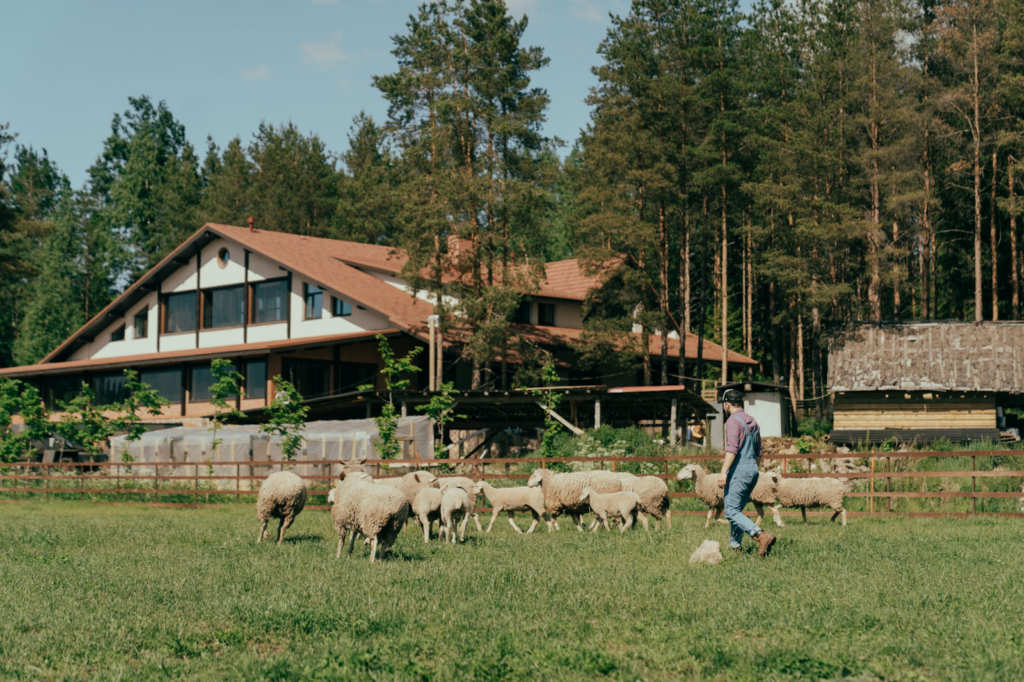
Source: Pexels
Our convenient modern lifestyles have dramatically changed our lives. Basic skills that were once passed down from generation to generation have been all but lost to time, such as cooking from scratch, knitting, and washing clothes by hand.
But on a homestead, those skills are essential for not only running it effectively but being truly self-sufficient. Whether you want to get into some basic homesteading or you’re dreaming of running a full-time homestead as an income generator, here are some basic skills you will need.
Skills as a Homemaker
Household chores are a big part of running a successful homestead. Here are some basic homemaker skills you should learn.
1. Hand-Washing Clothes
Washing clothes is a necessity. While modern life gives us the convenient and ease of an automatic washer and dryer, hand washing your clothes is a good way to conserve energy and preserve your fabrics to get more wear out of your clothes.
2. Line Drying Clothes
Some people still hang clothes on a line to dry – or delicate clothes, at least. But the majority of us rely on our automatic dryers to make laundry dry quick and simple. Line drying isn’t hard to learn, but it’s a huge help with saving energy and caring for your fabrics.
3. Making Household Cleaners
Commercial household cleaners are filled with synthetic fragrances and chemicals, but all you really need is vinegar, baking soda, and natural oils to clean your home. You should learn to make your own floor cleaners, furniture polish, disinfectant, and dish soap to save money, become more self-reliant, and do your part for the environment.
4. Making Homemade Soap
Just like the household cleaners, you can make your own cold-process soap. The process is simple and you’re doing better for your body with natural, nourishing substances. You can even take it a step further with lotions and balms.
5. Hand Sewing
For those in the millennial generation and older, basic sewing skills were part of many school’s curricula. It’s no longer taught in most schools, but it’s an important skill to learn. Once you get the hang of basic stitches, you can mend your own clothes, sew on missing buttons, and eventually work your way up to full patterns.
6. Use a Sewing Machine
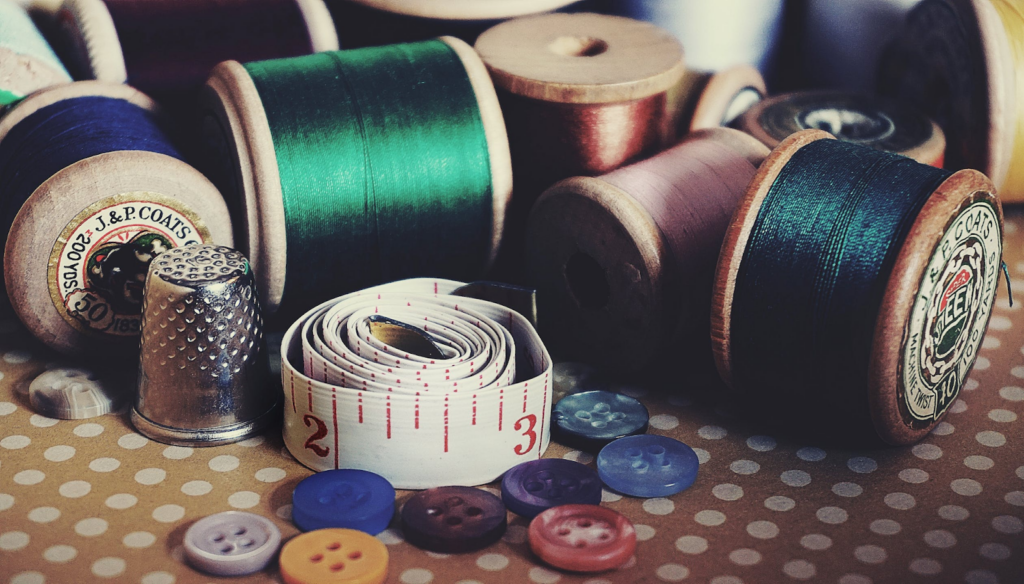
Source: Pexels
Yes, homesteading relies on a lot of the “old ways,” but you don’t have to ditch all modern conveniences. A sewing machine makes things a lot quicker and easier without using a lot of energy. Invest in an old sewing machine, which is better than the new plastic models, and learn your way around it.
7. Crocheting and Knitting
Crocheting and knitting are skills that used to be part of family tradition, but they’ve fallen to the wayside. These skills are helpful for learning to make warm winter clothing, blankets, and household items. Best of all, they’re not hard to learn – it just takes practice.
8. Making Homemade Candles
Candles aren’t just décor that smells good – they light your home. While you won’t need to ditch electricity for your homestead, relying on candlelight every so often helps you cut back on your energy use. Learn to make your own candles from beeswax or tallow, whether it’s to use soft light without electricity or to prepare for an emergency.
9. Make Pottery
Learning to make pottery isn’t required for a homestead, but it’s a big help. You can make your own bowls, mugs, plates, and more if you learn pottery. You could even take it further by learning how to make earthen clay out of soil.
Skills for Cooking and Preserving Food
No matter what you do on your homestead, growing food on your land and preserving it for your family is an important aspect of becoming self-sufficient. Here are the skills you need to cook and preserve food:
10. Canning

Source: Pexels
Canning is a popular way to preserve food. With water bath canning, you simply need jars, lids, rings, and boiling water to preserve high-acid foods like fruit. Pressure canning for low-acid food is a little more complicated and involves a pressure canner, but you can get the hang of it with practice. Both of these canning methods will be crucial to your food preservation.
11. Curing and Smoking
Curing and smoking meats is a common way to preserve them – one that goes back to before refrigeration. We still use curing today with foods like bacon and ham, but you can learn how to cure and smoke food on your own to make sausage, jerky, bacon, and more.
12. Dehydrating
Dehydrators are available to learn to make your own fruit leather, jerky, and dried herbs for your kitchen. If you prefer, you can use the sunlight or oven to dehydrate foods, but it takes more work and skill.
13. Freezing
Both refrigerators and freezers are necessary to keep foods safe for longer periods of time. You may be thinking that you know how to freeze foods, but there are specific methods to freeze fruits, vegetables, and meat to keep them fresh for much longer.
14. Fermenting
Like other old-timey skills, fermentation has fallen out of favor in recent years. This is a vital skill to learn to preserve foods and get more probiotics through sauerkraut, kimchi, or other fermented foods.
15. Butchering
If you plan on raising your own animals for meat, you can send them out for butchering or learn to do it yourself. Keep in mind that finding a suitable butcher nearby may be more challenging than you realize, so it’s a good skill to have. Learn how to butcher different animals, including pigs, chickens, turkeys, and deer. Cattle is a big task, so you may prefer to send them out for butchering.
16. Storing
Storing crops and using a root cellar are not skills that everyone has. Learn how to store potatoes and other root crops for long periods to enjoy fresh food without taking up all your refrigerator and freezer space.
17. Grinding Grain
If you want to make your own flour, you will need to learn how to grind wheat in a grinder. With that, you will need to learn how to use freshly ground flour, which is a little different than baking with commercial flour.
18. Baking
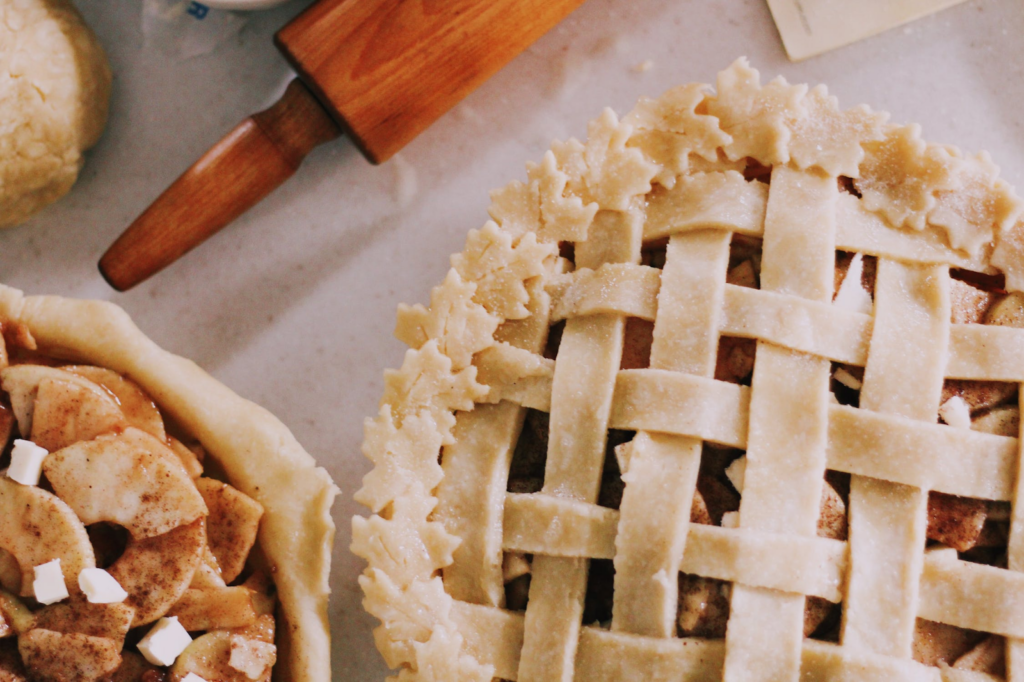
Source: Pexels
Some of us know how to bake, but it’s usually cakes, cupcakes, pies, and other desserts. How many people know how to bake bread without a breadmaker? Freshly baked loaves out of your own oven are so much better than what you can buy in the store, so get some practice baking bread before you become a full-time homesteader.
19. Churning Butter
Churning your own butter is a hard job, but you should learn the traditional way. Even if you get a gadget to do the work for you, knowing how to churn butter manually can be a useful skill in your homesteading toolbox.
20. Cheesemaking
With fresh milk at your disposal from sheep, goats, or cattle, learning to make cheese is a good skill to feed your family or monetize your homestead in the future. Mozzarella is one of the easiest cheeses to learn in the beginning, then you can work your way up to more challenging varieties.
21. Making Jams and Jellies
Preserving fruit using jams, jellies, chutneys, and similar preserves is good for adding sweetness to dishes, saving your fruit, and reducing refined sugar.
22. Cooking from Scratch
All of these skills come together in cooking from scratch – a basic homesteading skill. Whether you’re making spaghetti and meatballs, beef stew, or meat and potatoes, cooking from scratch and getting comfortable with recipes is important for using all the food you preserved and making the most of your food stores.
23. Eating Seasonally
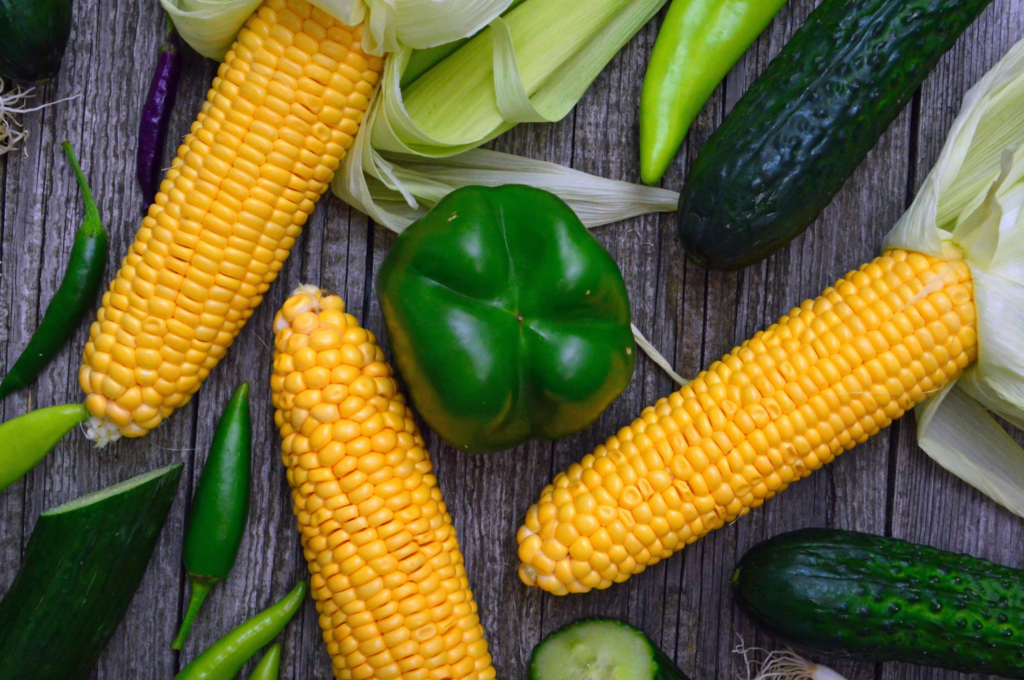
Source: Pexels
With our modern infrastructure, we can get just about any food in any season. When you’re homesteading, you have to rely on what’s available in season, so it’s important to learn how to cook according to the seasonal produce to make use of your stored foods.
24. Using Every Part of the Animal
Most Americans eat specific cuts of meat – usually, the muscle meat. Homesteaders usually eat the entire animal, nose to tail, including “undesirable” bits like ears, chicken feet, and tails. All of these parts are edible, even if it’s just to flavor a broth or stew.
Skills in the Garden
Homesteading activities vary, but the one thing that’s consistent is gardening. Learning these gardening skills is essential to growing your own food on your homestead:
25. Composting
Regular composting is a lot of work, but it’s a big help to cultivate a good garden. There are many ways to build your compost pile, but it’s important to learn before you’re running your homestead. If you want to compost but you don’t have a lot of room, vermicomposting is a good option that doesn’t require a lot of space.
26.Growing Plants from Seed
Gardening is easier when you’re using grown plants or seedlings, but it’s important to learn to grow from the seed. This offers more varieties that aren’t available at most stores, making you less reliant on outside help.
27. Propagating Plants from Cuttings
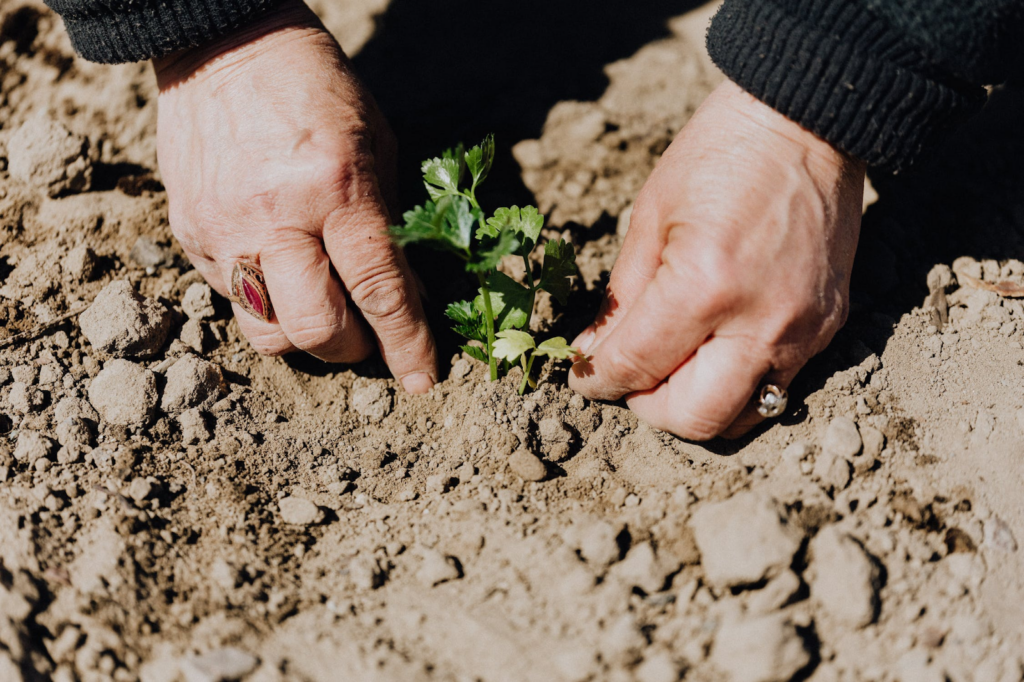
Source: Pexels
Once you learn to grow from seeds and bulbs, the next step is to propagate plants from cuttings. You’ll unlock a range of possibilities for your garden.
28. Controlling Weeds
Weeds are the bane of every gardener’s existence. It can be difficult to keep weeds under control but learning natural weed management gets you a jump start to allow your garden to flourish.
29. Regenerative Gardening
Regenerative farming practices include no-till, weed-free gardening that simplifies your gardening practices without equipment, synthetic fertilizers, and chemical-laden pest and weed control.
Livestock and Husbandry Skills
If you’re planning on keeping animals on your homestead, it’s important to learn to care for them properly. Here are the skills you should learn:
30. Caring for Chickens
Chickens are a “gateway” animal for homesteaders and farmers. They’re easy to care for, but they still have specific needs that you need to learn. You can keep chickens just for eggs or breed to raise chicks, laying hens, and meat birds.
31. Keeping Waterfowl
Some homesteaders keep ducks and geese on the homestead to get meat and eggs from more animals. Waterfowl can be more difficult to care for, so learn the husbandry needs of these animals and select the breeds that are most appropriate for your homesteading goals.
32. Raising Meat Rabbits
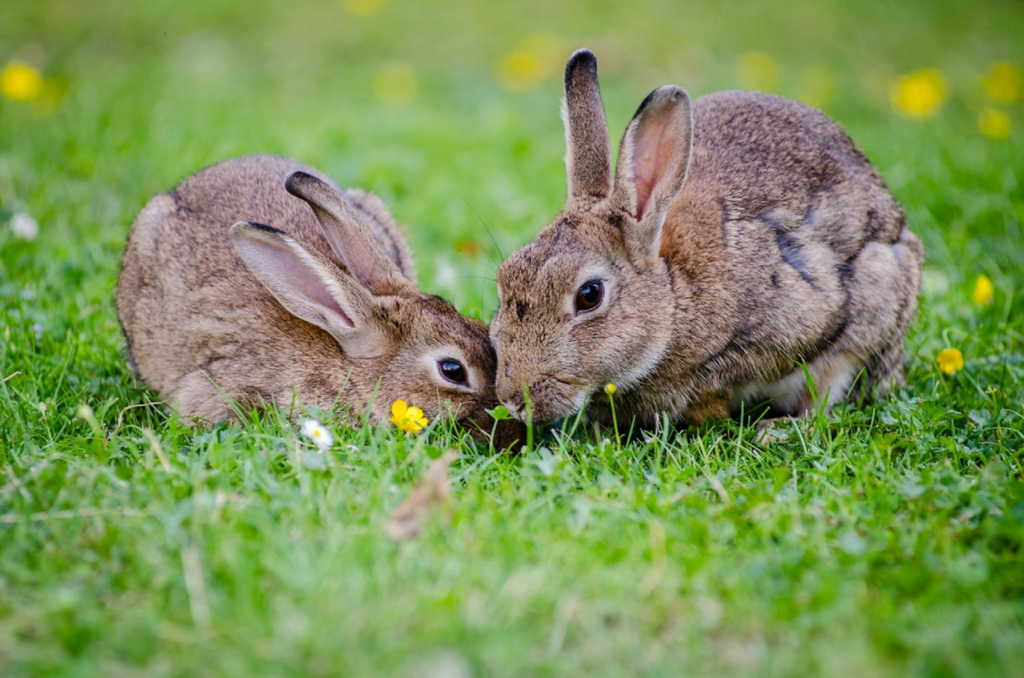
Source: Pexels
Rabbits are suitable for small-scale homesteading because they don’t eat much and don’t take up a lot of space, but they still have precise care needs. Before you get rabbits, make sure you know how to care for them properly.
33. Breeding and Birthing
If you plan on breeding and raising your own animals, you will need to know how to handle both processes. Vets may not always be available, and though these animals can mostly handle things themselves, complications can arise. Learn the basic practices to be prepared.
34. Giving Injections and Oral Medications
As mentioned, vets may not always be available. It’s important to know how to give an intramuscular, intravenous, subcutaneous, and intradermal injection to animals – as well as what medications are appropriate for different livestock.
35. Making Feed
With supply chain issues and materials shortages, it can be challenging to get commercial animal feed. For some animals, you can make your own feed to ensure you can bridge the gap if their food isn’t available.
36. Cutting, Baling, and Storing Hay
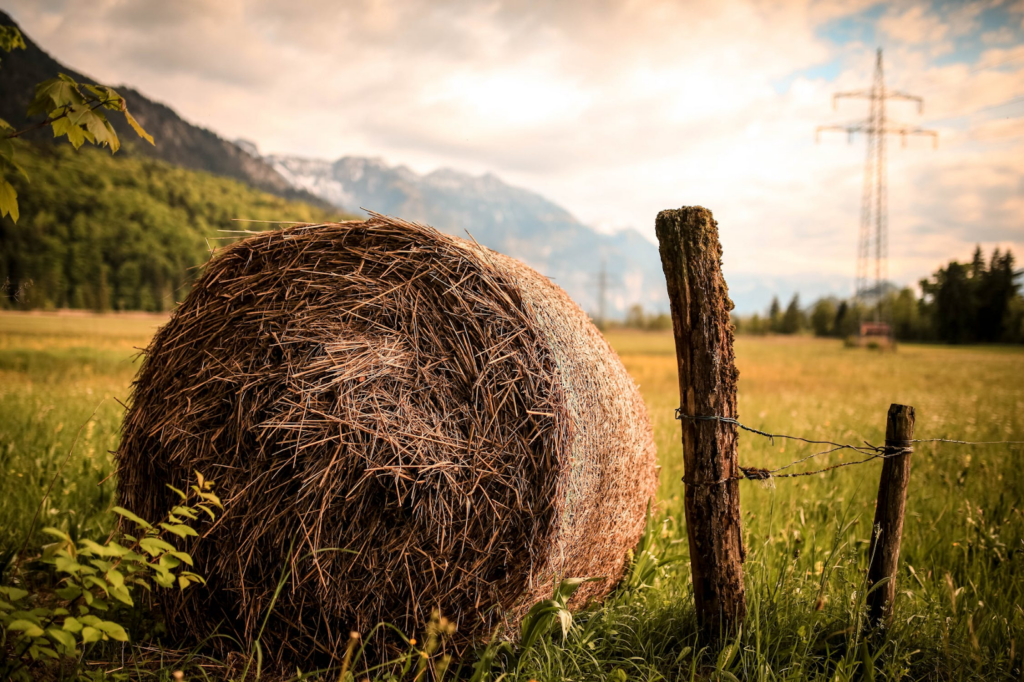
Source: Pexels
Learning how to cut, bale, and stack your own hay is important for raising livestock, especially in areas with rough winters. If you don’t grow hay on your own property, see if you can learn how to cut and bale from another homesteader in your community.
37. Keeping Bees
Beekeeping is popular among small-scale homesteaders because it doesn’t take up a lot of space. Learning how to keep bees healthy and harvest honey is important for having an additional source of food for your home as well.
Prepare for Your Homestead
These are just a few of the skills you need to master to successfully manage your homestead, but they’re essential. As you learn, you can add more advanced skills like blacksmithing, carpentry, carding fiber, and more.
Leave a Reply
SUBMIT FORM
To inquire into legal services, consulting services, or overnight boarding availability and options, please fill out the form or send a note directly to fairwaystables@gmail.com.
CONTACT US
Follow along on Instagram at @paige.hulse
This website is solely intended for the purpose of attorney advertising, and for general information purposes only. Nothing on this site should be taken as legal advice for any individual case or situation. This information is not intended to create, and receipt or viewing does not constitute, in no way establishes an attorney-client relationship. An attorney client relationship is only formed when you have hired me individually and signed an engagement agreement. No past results serve in any way as a guarantee of future results.
Leave a note